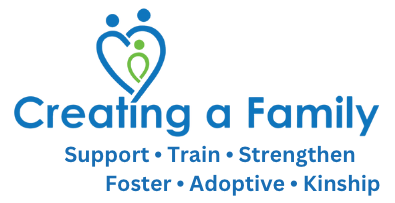Adopting a child who is already part of your extended family, circle of friends, or acquaintances brings joy and challenges. Seeing a child land safely and maintain connections to his community and culture can ease your family’s pain over the birth parents’ struggles. However, this kinship adoption has likely also changed the dynamics within your family.
Kinship Adoption Brings a Myriad of Feelings.
It’s hard to know what to expect when your family is presented with a child’s need for permanency in the face of a birth parent’s substance disorder, mental health challenges, or other significant struggles. Thanks to several experienced kinship adoptive parents in our online community*, we have some “life lessons” to share to help you prepare for your family’s kinship adoption.
I felt stuck in the middle.
Whether your adopted child is a relative in your extended family or fictive kin (not necessarily related by blood or marriage but maybe a family friend or acquaintance), your relationships predate this new relationship. That means things between you all can get sticky.
…friends and family members ‘picked sides.’ Some were rooting for “X” to be able to get “Y” back, and some were rooting for her to fail so that “Y” could be adopted by (us). These family members are intelligent, loving, wonderful people, but I felt like I was seeing a darker side to them.
I felt unprepared.
Often, kinship placements occur with very little notice. Of course, you’d prefer to have the perfect room set up and waiting for these precious children, but that’s not always possible.
“A” gave birth to “B” in early winter, and “B” was born addicted… we were called 7 days later. We had less than 48 hours to prepare for a newborn to come home with us…“
Usually, however, that sense of unpreparedness is about more than where the baby will sleep. Instead, it’s about your ability to meet the child’s needs and understand their experiences to help lead them toward healing.
…Trying to help kids heal from trauma, when no one in the family will fill in missing information is hard. What I wish I knew was to ask lots of random questions when the kids were first placed with me so I would have known more about the family dynamics.
Get your free guide as our thanks for subscribing to our free newsletter!
I felt nervous and uncertain.
Most of us feel anxious about changes in our family dynamics – whether it’s bringing home a new baby, a family member divorcing, or other transitions that impact us. But when we adopt the child of a loved one, especially one with whom we’ve shared a significant history, it’s absolutely normal to feel uncertain about how this change will change many other facets of your family. Add to that a transition that might be fraught with substance abuse, chaos, or loss, and you have a mix rife with the potential for significant stress.
Sometimes I still feel like I’m walking on glass with all the hurdles but, there is light at the end of the tunnel…
“Y” is now ___ years old. Some of the family tensions are still there. Relationships have been damaged and it’s difficult to see them ever being restored. It’s all very sad… Of course, all decisions have been made in the best interests of the child. But at a (very) high cost to some others.
How Do You Handle The Challenges of Kinship Adoption?
1. Educate yourself.
It is a familiar refrain here at CreatingaFamily.org, but we say it because it’s true: “Knowledge is power.” We exist to prepare and equip parents and caregivers to raise strong, healthy families. The kinship adoptive parents in our community agree that it’s imperative to inform yourself about the issues related to raising this precious child, including:
- Healing from trauma and loss
- Creating secure attachment
- Understanding prenatal substance exposure
- Managing open adoption
- Transracial adoption
There are more opportunities to learn with these FREE Courses!
2. Surround yourself with support.
Parenting should not be a solo venture. Parenting a child who has experienced trauma, loss, and enormous change like yours cannot be done alone. It helps to have a network of support that understands the unusual dynamics of your family, your child’s experiences, and your whole family’s needs.
Community support is so important. Find your people and tell them what you need.
3. Consider therapy.
For many kinship adoptive families, the added layers of changing family dynamics can make it hard to get to the root of a child’s struggles. A supportive, therapeutic relationship with an adoption-competent therapist or counselor can be just the safe, objective space you each need to find the path forward.
Each child will respond differently to adoption and will struggle in different ways. Find a trauma-informed, adoption-competent play therapist…
Additionally, reckoning with the impacts of your choices for this child on the birth parents or other family members deserves support. A therapist or counselor can help you make sense of that dilemma.
Life Won’t Be the Same. And That’s Okay.
Of course, there are likely many other “life lessons” the kinship adoption community can teach us all. However, one lesson stood out above all the others:
Give yourself grace and time. You won’t ever return to normal, but you will come out the other side into a new normal. It won’t happen as fast as you like, but you’ll get there.
You and your family are on this new journey, and it won’t feel like other changes you’ve experienced together. But these changes will eventually settle in to create your new normal. And you will likely discover that every bump and hurdle is worth it for the love and joy you now experience with this child.
*To protect the privacy of the members who shared so generously, we’re not using names or identifying information.
Image Credits: Pixabay; Claudia Barbosa; Gustavo Fring



Add Your Comment